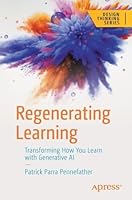
The Little Java Book Of Adventure Game Programming: Learn Object Oriented Coding – advanced techniques
- Length: 192 pages
- Edition: 1
- Language: English
- Publisher: Dark Neon
- Publication Date: 2020-11-30
- ISBN-10: B08PDHSH1C
- ISBN-13: 9781913132132
Learn Object Oriented Programming in depth by writing a retro text-adventure!
This book will teach you the secrets of text adventure programming – from beginner to advanced level. You will learn how to create Rooms and Treasures, how to let the player take and drop objects and how to save a games using serialization. You will also learn advanced techniques such as using recursion to calculate the combined masses of Treasure objects (so the player can only take a specific number and weight of objects at a time) and parsing adjectives so that the user can enter commands such as “take the small golden Elvish sword”. You can download all the code free – including the Bitwise Interactive Fiction Framework to help you to write your own games!
Huw Collingbourne has also written a book for C# programmers call The Little Book Of Adventure Game Programming in C#. This Java-based book explains all the techniques described in the C# book and much more. It goes into the nitty-gritty details of quite advanced coding using recursion, string-matching, serialization and method overriding. Huw is author of the cult adventure game, The Golden Wombat Of Destiny. All the source code of this book, including example programs and the BIFF framework can be downloaded from from the Bitwise Books web site at: www.bitwisebooks.com.
The Little Book Of Adventure Game Programming in Java provides a step-by-step guide to creating a game in Java. If you want a fun way to extend your knowledge of the Java language and Object Oriented techniques, look no further!
This book explains…
- How to write Interactive Fiction (IF) games
- Creating class hierarchies
- How to create a map of linked ‘rooms’
- Moving the player around the map
- Adding treasures to rooms
- How to take and drop treasures
- Putting objects into containers (sacks, treasure chests etc.)
- Using lists and dictionaries (HashMaps)
- Overridden methods
- Overloaded methods
- How to save and load games
- Streaming and serialization
- Recursion
- Parsing user commands
- Matching adjectives with objects
- Distinguishing one object from a similar one (e.g. “small gold ring” or “big silver ring”)
- Calculating total mass of objects (so player can only carry a specified size or weight)
- Designing a command-line game to run at the system prompt
- Write your own games with the free BIFF game framework
Huw Collingbourne has been a programmer for more than 30 years. As well as writing text adventure games, he is an online programming instructor who has taught tens of thousands of students to code in languages such as Ruby, C, C#, Java and Object Pascal. He has written programming columns for numerous computer magazines such as PC Plus and Computer Shopper. He is Technical Director of the independent development company, SapphireSteel Software. He is the author of a number of programming books including The Little Book Of C, The Little Book Of C#, The Little Book Of Pointers and The Little Book of Recursion.
The Little Book Of Adventure Game Programming in Java gives you just the stuff you really need to get straight to the heart of text adventure programming without all the fluff and padding.







